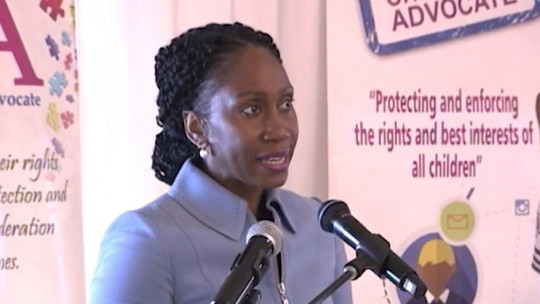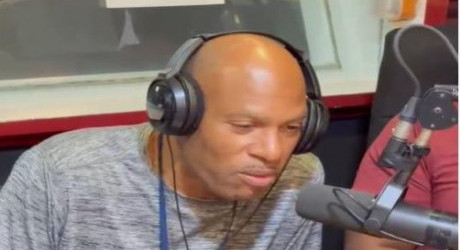.png)
00:00
00:00
00:00
Children's Advocate Diahann Gordon Harrison
Children's Advocate Diahann Gordon Harrison is urging school administrators to use the Sex Offender Registry as part of the process to thoroughly check the backgrounds of potential staff members in order to create safe spaces for children.
Addressing early childhood educators in St. James on Wednesday, Mrs. Gordon Harrison, who is also National Rapporteur on Trafficking in Persons, says that schools cannot depend on a paper quantification and appearances.
"Very topical now is the Sex Offenders Registry and the fact that it's closed. But what is true is that it is not closed to someone who has a very credible and justifiable reason seeking access. So my recommendation, as I've said before and repeated today, is that when you're recruiting prospective staff, contact the registry.
"Find out if John Brown, who has applied to work in your institution, is a registered sex offender because if he is, that means that he's someone that you would exclude from exposing to people's children. So too for Mary Ellen. Find out if Mary Ellen is a convicted sex offender, and so that way we can ensure that we're having appropriate persons who are given direct access to some of our most vulnerable children," she advised.
She shared data from 2023 to emphasize that most instances of abuse of children are taking place in educational institutions. At the top of the list is physical abuse, followed by sexual abuse and neglect of duties.
In the meantime, the Children's Advocate said a number of institutions are conducting their due diligence and educating themselves on appropriate methods of correction for misbehaving children.
But Mrs. Gordon Harrison said great intervention is required on the part of schools and authorities such as her office.
"You have many principals, teachers and other professionals within the school space who are getting it right. But we continue to see reports coming out of certain institutions that have challenges. And so where we stand is we have to have very strategic what I call public education, so that persons who are in the institutions know what's appropriate and what's not. Because sometimes when we get the reports and our investigations department, for example, intervenes with the school, we learn that the teachers are very well-intentioned, very much challenged and want to see a change in the behaviour, but they're not sure how to navigate that process," she acknowledged.
Her advice follows recent reported incidents of violence against children.









 All feeds
All feeds







